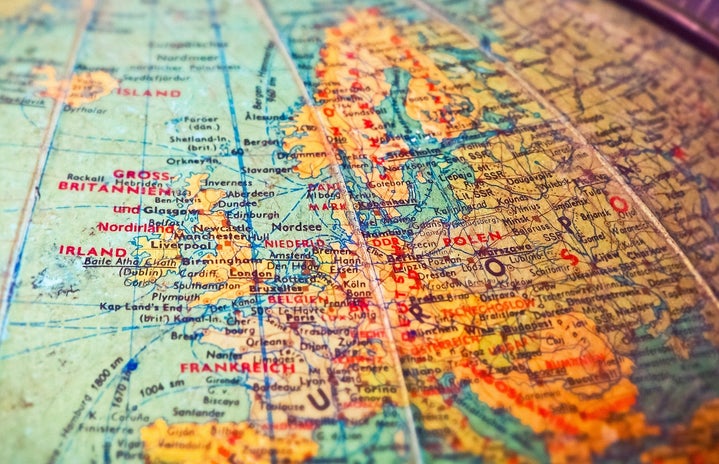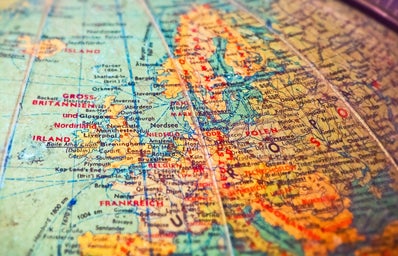In 2014, Russia invaded Ukraine and annexed the city of Crimea. Crimea used to be a part of Ukraine during the Soviet times. This attack on Ukraine was in reaction to the removal of the Ukrainian president, who at the time was closely allied with Russia. Russia feared the new Ukrainian government was replacing the deposed president, going to move closer to the United States, and potentially join NATO. This caused Russia to send troops into Ukrainian territory, annex Crimea, and send unmarked soldiers into Crimea to encourage insurgent forces to fight a war of secession against the central government. Even though Russia did not formally take over that territory, this situation was called the frozen conflict because Russia could always restart the conflict by supporting insurgents or threatening to send in troops again.
Russia’s President Vladimir Putin threatened to restart the same conflict in Ukraine in 2021. He sent thousands of troops to the Russian-Ukraine border. The primary interests of Russia regarding the international status of Ukraine revolve around Putin stating that he views Ukraine and Russia as part of a single ethnic, historical, and political entity. He believes that there is no sovereign Ukraine because, historically, Ukraine was part of the Soviet Union. Also, Ukraine holds many ethnic Russians and Russian speakers in the east. Putin argues that Russians, Ukrainians, and Belarusians are all the same. Putin also claims that Ukraine is an essential part of Russia’s historical sphere of influence, hence, why the expansion of NATO must not influence Ukraine. This inclined Putin to give the United States and the West an ultimatum in exchange for the removal of Russian troops from the border: the United States and NATO must ensure that Ukraine is never admitted into NATO’s military alliance, NATO forces must be removed from Eastern Europe, and NATO military drills in Eastern Europe must be terminated. However, the primary interests of the United States and its Western allies regarding the international status of Ukraine consist of supporting the fact that Ukraine is an independent state. The United States stands by its position that NATO will retain an open-door policy towards Ukraine and any other country. The U.S. has emphasized that Russia’s demand that Ukraine is never allowed to enter NATO is a non-starter and that this is a matter of principle for the West. They cannot allow Russia or any other country to dictate the foreign policy of another state by stating which alliances Ukraine can and cannot join.
Russia invaded Eastern Ukraine on February 24, 2022. They have bombarded civilian centers, causing 3 million refugees to flee from Ukraine with over 10 million displaced civilians. They have failed to capture the major Ukrainian cities like Kyiv, currently resulting in a stalemate. Present Joe Biden and the West have rejected the use of military action. However, there are numerous policy responses and sanctions that the Biden administration and its European allies have taken in response to Russia’s invasion of Ukraine. Russia was removed from SWIFT international banking systems, overseas assets were frozen, and powerful individuals, including Putin, Lavrov, and Russian oligarchs, and the Russian Central Bank, were sanctioned. Also, Non-economic sanctions were used on Russia: Germany initially refused to send weapons to Ukraine and changed its policy to provide arms to Ukraine, the European Union (EU) banned Russian aircrafts from entering their airspace, and the EU suspended broadcasting rights for Russian state news agencies Sputnik and Russia Today. There were immediate adverse effects on the Russian economy due to these policies. The Russian currency lost 30% of its value and hit a record low, the Central Bank raised the interest rate from 9.8% to 20% to support the ruble, the stock market crashed and closed for the week, and their stocks in foreign markets lost 98% of their value, losing $572 billion of market share. The Russian economy could face severe recession and hyper-inflation; however, they will not immediately run out of hard currency. Russia’s energy and grain exports are exempt from these sanctions, producing approximately $500 million per day.
The Biden administration’s and broader Western response to Russia’s aggression have been effective, however harmful. The U.S. and the West did not consider how these policies would be detrimental globally. Specifically, blocking Russian exports has resulted in high global food prices, which harm the poor and vulnerable. This has caused the potential weakening of the sanctions on Russia in the future due to this global food crisis. The war between Russia and Ukraine is not likely to end soon; the long-term implications of this war could become brutal.
Source: International News Now at the University of Texas at Austin


